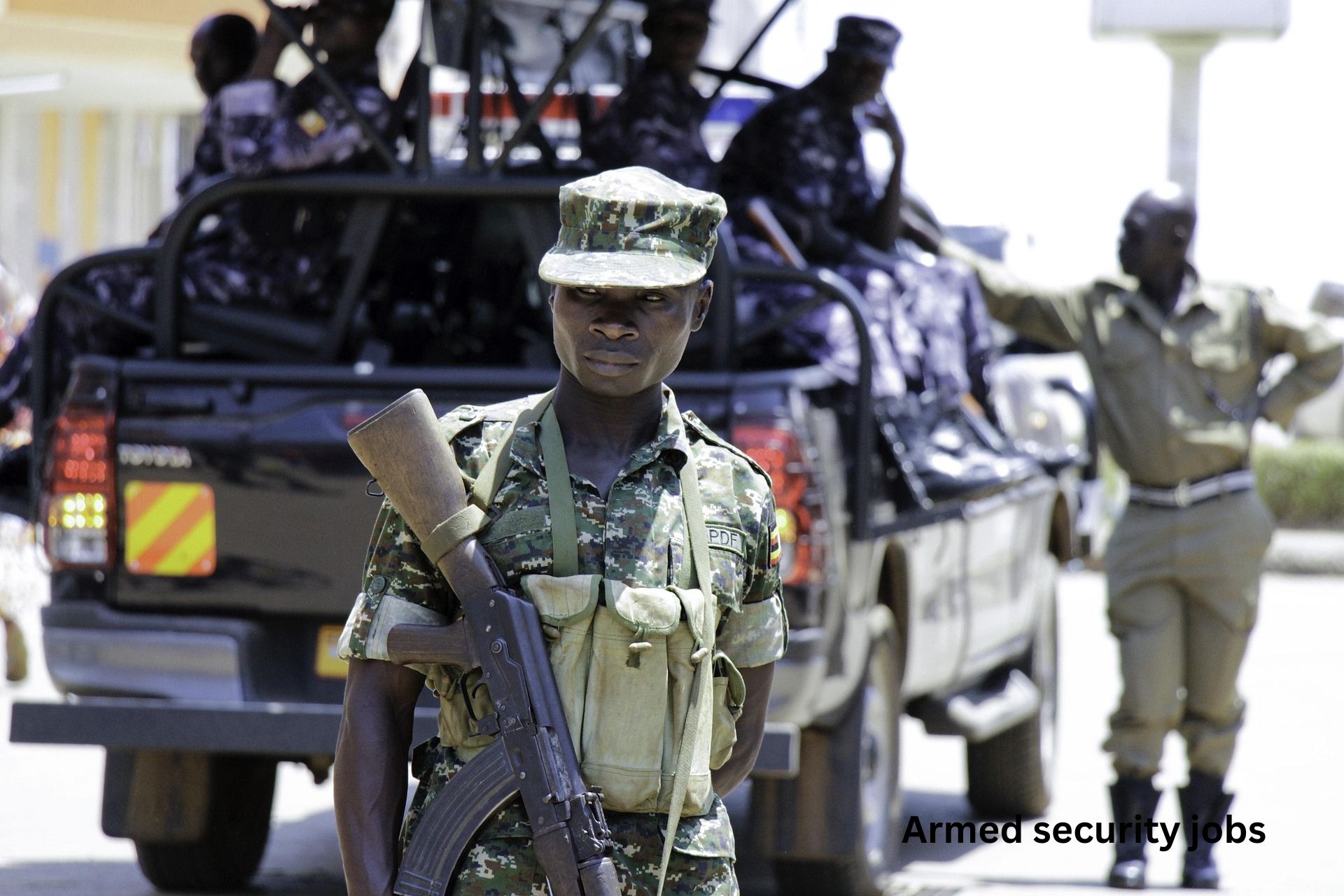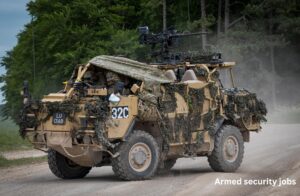Introduction
Trained professionals approved to carry weapons while on their jobs are armed security guards. Their main duty is to discourage and handle possible hazards thereby guaranteeing the security of people, buildings, and valuables. Armed guards are more suited than unarmed security guards to manage events that might call for more intervention.
Important obligations
The company and the particular assignment will affect the responsibilities of an armed security officer. Typical roles include:
Regularly patrolling and monitoring buildings helps to discourage and find evidence of risks or invasion.
Velentives
Managing departure and entrance points helps to stop unwanted access.
Reacting quickly to alerts, events, and crises including first aid if needed allows one to be in control.
Recording daily events, notes, and incidents for the company as well as, should necessary law enforcement.
Ensuring safe and responsible use of weapons and other equipment helps to maintain them.
These experts have to be alert, make snap judgments under duress, and behave correctly under different circumstances.
Essential Skills and Qualifications
Those hoping to work in armed security usually have to satisfy particular requirements:
Generally speaking, one needs a high school graduation or comparable.
Most states require armed security officers to get a license, which entails background checks, weapons training, and occasionally further study.
AP News
Experience: Although some jobs are entry-level, others could call for past military, law enforcement, or security experience.
Strong observational skills, good communication, smart judgment, and the ability to cool under duress are among the fundamental ones.
Maintaining current laws, rules, and best practices in security and weapon handling usually depends on ongoing education.
Salary Ranges
Location, experience, and the particular business will all affect armed security officer pay. The average hourly pay for an armed security guard in the United States as of May 2025 is almost $21.20. Still, this might run from about $15.12 to $29.70 every hour. For example, the average hourly pay in New York is rather higher at around $36.24.
Salary factors include the officer’s experience and certifications, the risk level connected with the job, and the industry sector of the company.
Future Direction of Employment
Demand for security guards including armed ones remains consistent. The U.S. Bureau of Labor Statistics projects 2% increase in employment for security guards and allied jobs between 2023 and 2033. Although this growth rate is slower than usual, retirements and worker turnover are likely to be the main causes of the industry’s around 162,400 job openings yearly.
Labor Statues Bureau of Commerce
In industries where the safety of people and expensive goods is absolutely vital, the demand for armed security guards is especially strong.
Fields Using Armed Security Agents
Professionals in armed security find employment in several sectors, including:
Banks and credit unions call for armed guards to guard against theft and guarantee employee and client safety.
Hospitals and clinics use armed security to protect patients, personnel, and sensitive locations.
Schools and colleges may have armed police to improve campus security.
Shopping centers and office buildings use armed guards to control emergencies and discourage criminality from retail and commercial properties.
Transportation and Logistics: Armed security is used in ports, airports, and logistics businesses to guard infrastructure and goods.
Every sector could have particular guidelines and needs for their security guards.
Advancement Possibilities
One can have many chances for success in a profession in armed security:
Experienced police officers might enter supervisory or managerial roles, supervising groups of security guards.
Additional training helps officers to specialize in areas including executive protection, cybersecurity, or risk assessment.
Leveraging their experience and training, some armed security professionals move into law enforcement professions.
Certifications and ongoing education help to create new routes within the security industry and support professional development.
Difficulties and Thoughts of Reference
Although fulfilling, armed security positions have several difficulties:
Having a gun means great responsibility and the necessity of wise judgment under demanding circumstances.
Officers could come into risky circumstances that call for constant alertness and following safety procedures.
Maintaining license and efficacy depends on keeping compliance with changing laws and rules.
Prospective applicants should evaluate these elements and determine their suitability for the responsibilities of the post.
Conclusion
Jobs in armed security provide a necessary service in safeguarding people and assets in several spheres. Those with the correct credentials, experience, and attitude can follow a rewarding profession that advances public safety and security. For committed experts, chances for development and specialization abound as the sector changes.


